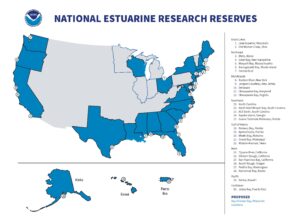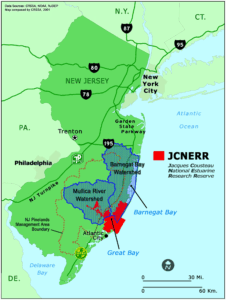Main Content
The National Estuarine Research Reserve System (NERRS) is a system of 30 reserves around the country (and Puerto Rico) developed to protect the biologically, ecologically, economically, and aesthetically important areas along our coasts known as estuaries. Estuaries occur where our rivers meet the sea – where fresh and salt water mix to create a unique and very productive ecosystem vital to life both on land and in the sea. The Jacques Cousteau National Estuarine Research Reserve (JC NERR) is one of the 30 Reserves created to promote the responsible use and management of the nation’s estuaries through a program combining scientific research, education, and stewardship.
The JC NERR encompasses approximately 116,000 acres in southeastern New Jersey, including a great variety of terrestrial, wetland and aquatic habitats within the Mullica River-Great Bay ecosystem. The Reserve is a concentrated patchwork of federal and state lands managed in partnership through a variety of agencies. With little more than 1% of the Reserve subjected to human development, this area is regarded as one of the least disturbed estuaries in the densely populated urban corridor of the Northeastern United States. Occurring within the unique New Jersey Pinelands forest ecosystem, on the coastal plain and the barrier islands of the coastal margin, the Mullica River-Great Bay estuary is of special ecological value. The high environmental quality of the habitats within the Cousteau Reserve are consistent with the objective of the Reserve system to preserve areas which retain a healthy ecosystem and provide the opportunity to serve the needs of long-term research and monitoring programs.
Mission of the JC NERR
The mission of the Jacques Cousteau National Estuarine Research Reserve (JC NERR) is to improve management of New Jersey coastal environments through science, education, and stewardship.
The JC NERR provides research and education opportunities and practical information for coastal decision-makers to improve the management of land and other natural resources. Properties within the Reserve are entirely in public ownership by various state and Federal entities, and their protected status serves as an excellent site to provide a long-term database for valuable management of coastal resources.
Land Management Partners
The JC NERR provides research and education opportunities and practical information for coastal decision-makers to improve the management of land and other natural resources. Properties within the Reserve are entirely in public ownership by various state and Federal entities, and their protected status serves as an excellent site to provide a long-term database for valuable management of coastal resources.
The following agencies serve as partners in the JC NERR:
New Jersey Conservation Foundation
New Jersey Agricultural Experiment Station at Rutgers University (managing partner)
National Estuarine Research Reserve System
National Estuarine Research Reserve Association (NERRA)
New Jersey Department of Environmental Protection
Edwin B. Forsythe National Wildlife Refuge
Richard Stockton College of New Jersey
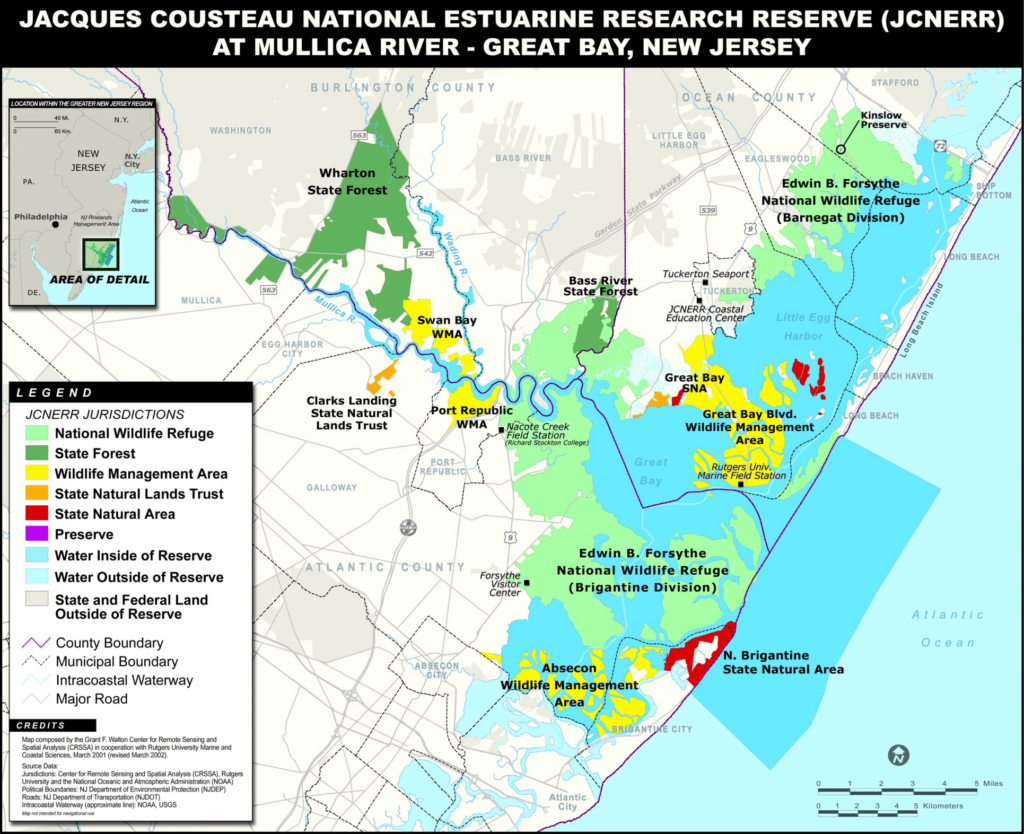
How did the JC NERR get its name?
On October 20, 1997 the Jacques Cousteau National Estuarine Research Reserve was dedicated in honor of Jacques Y. Cousteau by Congressman H. James Saxton of New Jersey’s 3rd District. Jacques Cousteau produced more than seventy films for television, films which have won numerous Emmys and other awards. Captain Cousteau had also produced three full-length theatrical feature films, and wrote, in collaboration with various co-authors, more than fifty books, published in more than a dozen languages. Captain Cousteau died June 25, 1997, at the age of 87. The Cousteau Society continues his work to protect and preserve the planet for future generations under the leadership of Francine Cousteau and Sir Peter Blake.
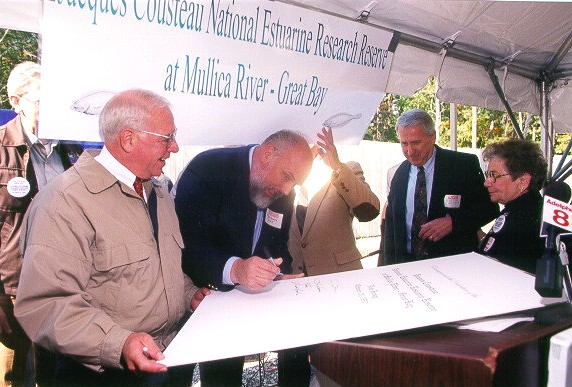
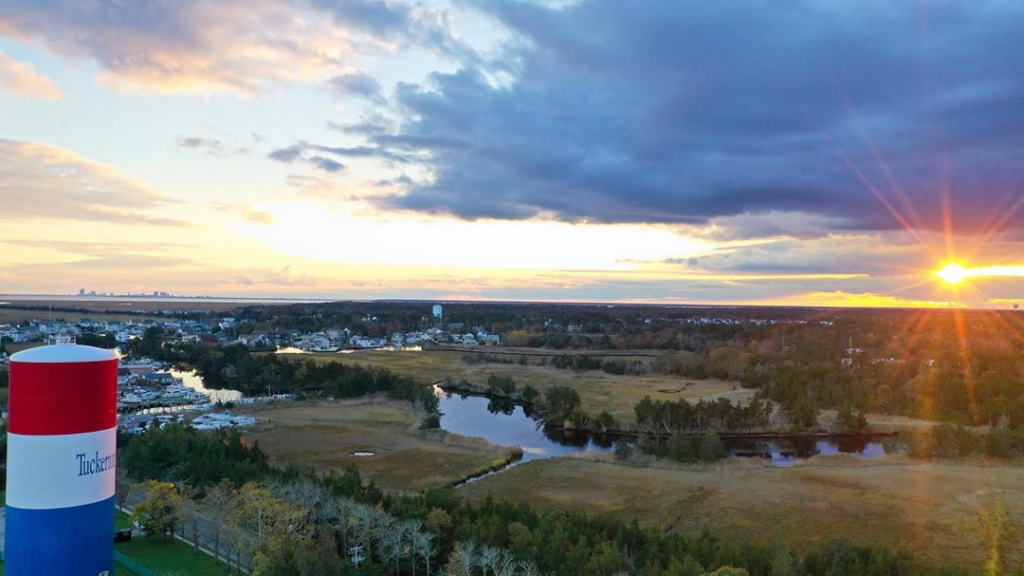
We acknowledge that the land on which we stand is the ancestral territory of the Lenape People. We pay respect to Indigenous people throughout the Lenape diaspora–past, present, and future–and honor those that have been historically and systemically disenfranchised. We also acknowledge that Rutgers University, like New Jersey and the United States as a nation, was founded upon the exclusions and erasures of Indigenous peoples.
